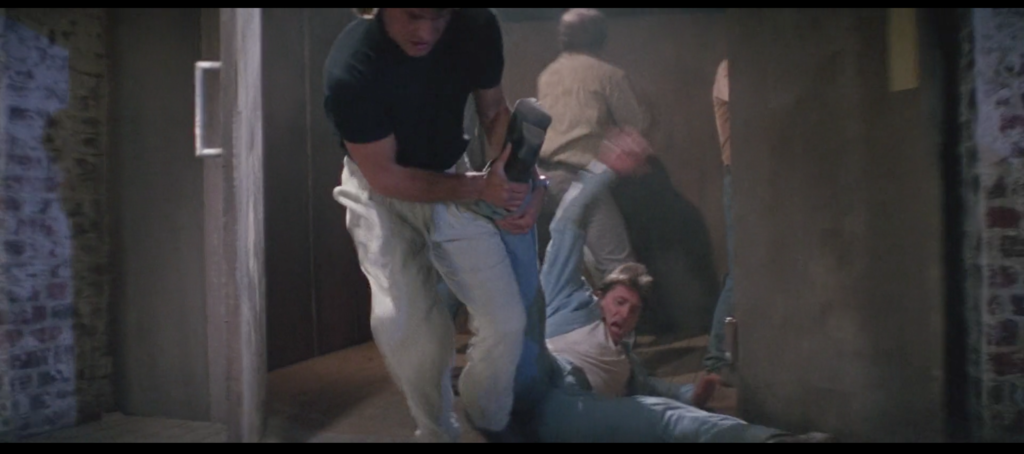Posts Tagged ‘George R.R. Martin’
Boiled Leather Audio Update!
July 31, 2021In our two most recent Patreon-exclusive mini-podcasts, Stefan Sasse and I discuss how shows with bad first seasons sometimes wind up with great second seasons, and everything we didn’t like about Game of Thrones! Go subscribe and listen!
The Boiled Leather Audio Hour #133!
July 9, 2021The Boiled Leather Audio Hour Episode 131!
June 1, 2021Stefan Sasse and I address the role of monsters—the inhuman kind, I mean—in A Song of Ice and Fire in our latest episode, available at the link or wherever you get your podcasts!
And if you’re a $5 subscriber to our Patreon, you can hear our take on the role of Hizdahr in the story. Go subscribe!
The Boiled Leather Audio Hour #130!
April 26, 2021It’s me and Stefan Sasse on the future of the Westeros Cinematic Universe—multiple spinoffs and prequels, an animated series, and even a stage play—in the latest episode of the Boiled Leather Audio Hour, available here or wherever you get your podcasts!
The Boiled Leather Audio Moment #47
April 15, 2021In our latest mini-podcast at the Boiled Leather Audio Hour patreon, Stefan Sasse and I discuss our favorite A Song of Ice and Fire characters. There’s lots more where that came from on that patreon, so do consider subscribing!
The Boiled Leather Audio Conversation #23!
April 12, 2021I’ve joined my illustrious co-host Stefan Sasse for a brief, Patreon-exclusive conversation about the depressing discourse surrounding Game of Thrones Season 8. It’s sure to make us a lot of friends and it’s available right here!
The Boiled Leather Audio Hour Episode 122!
January 25, 2021Who taught Bran Stark and future media superstars Dunk & Egg how to do what they do? Find out in part three of me and Stefan Sasse’s series on the Teachers of Ice and Fire in the latest episode of the Boiled Leather Audio Hour, available at our Patreon or wherever you get your podcasts!
The Boiled Leather Audio Hour Episode 117!
October 5, 2020Who taught Sansa and Arya Stark to do what they do? Stefan Sasse and I examine this question in the first part of our series on the teachers of Ice and Fire in the latest Boiled Leather Audio Hour episode—available here or wherever you get your podcasts!
The Boiled Leather Audio Hour Episode 110!
June 12, 2020Stefan Sasse and I tackle the Tyrion sample chapter(s) from The Winds of Winter in our latest BLAH episode, available via our Patreon or wherever you get your podcasts!
The Boiled Leather Audio Hour Episode 109!
May 30, 2020In the latest episode of BLAH, Stefan and I discuss the Barristan sample chapter(s) from The Winds of Winter. Available at the link or wherever you get your podcasts!
The Boiled Leather Audio Hour Episode 106!
April 11, 2020The Winds of Winter keep blowing as Stefan Sasse and I tackle the Arianne II sample chapter—available here or wherever you find your podcasts!
The Boiled Leather Audio Hour Episode 105!
March 28, 2020You’ve got time on your hands—why not spend it by listening to Stefan Sasse and I discuss the “Arianne I” sample chapter from The Winds of Winter in the latest episode of the Boiled Leather Audio Hour—available here and wherever fine podcasts are sold!
The Boiled Leather Audio Hour Episode 102!
February 18, 2020I’m back on the Boiled Leather Audio Hour podcast to talk to my co-host Stefan Sasse about the “Alayne” sample chapter from The Winds of Winter! Intrigue abounds! Find it here or wherever fine podcasts are sold!
The Boiled Leather Audio Hour Episode 100!
January 30, 2020Nine years. One hundred episodes. My illustrious co-host Stefan Sasse and I celebrate the Boiled Leather Audio Hour’s big milestone by reflecting on why A Song of Ice and Fire resonates with us in the first place. Click here to listen or find it wherever you find your podcasts!
The Boiled Leather Audio Hour Episode 97!
November 26, 2019Me and Stefan Sasse vs. the “Mercy” sample chapter from George R.R. Martin’s The Winds of Winter—it’s all going down in the latest episode of our podcast, available at our Patreon or anyplace podcasts can be listened to!
The Boiled Leather Audio Hour #95: Chapter Analysis: Theon I, The Winds of Winter
October 21, 2019Stefan and I are starting a series of Boiled Leather Audio Hour episodes going in-depth on each of the available sample chapters from The Winds of Winter, starting with a look at Theon I!
The Boiled Leather Audio Hour #93: A Song of Ice, Fire, and Water
September 16, 2019I’m back on BLAH this week with a look at the role and symbolism of water in A Song of Ice and Fire—including water-based magic, houses that derive their strength and identity from water, the use of bodies of water by characters in the story, and more!
144. The thousand injuries of Fortunato I had borne as I best could, but when he ventured upon insult I vowed revenge.
May 24, 2019Here’s Ketchum, the clear second to Jimmy in the hierarchy of Brad Wesley’s goons and his successor upon his death in much the same way that the unspecified entity Gothmog assumed control of the assault on Minas Tirith following the death of the Witch-king of Angmar, getting dragged out of the Double Deuce on his ass into the dirt parking lot outside. Bumpty bumpty bump, right down the front steps, squealing and mewling over his injured ankle all the way. In a matter of seconds, Dalton thwarted his assassination attempt, caught his leg in midair, ruthlessly twisted it, yelled “You’re too stupid to have a good time!” right in his face, toppled him to the ground, and dragged his ass, literally, into the dirt, also literally. Such is the indignity of this forced exit that, get this, his extended free leg is actually what opens the right-hand door (facing the building) while Dalton shoulders open the left. He is forced to facilitate his own humiliating defeat.
Now in addition to being the most anonymous of Wesley’s core goons, Ketchum is also the least sympathetic. My guess is that the two phenomena are interrelated. Can’t feel sympathy for a guy you can’t remember!
But recall that in the world of the story, Ketchum is a thought leader, a ring general , a man to whom the Tinkers and Bleeders and sister-sons of the world are supposed to look for guidance. Both Tinker and O’Connor—Tinker! and O’Connor!—fare better in their fight against Dalton than Ketchum does in his. Dalton beats Ketchum like a mule. To keep up the ring-general jargon, bahgawd ref, stop the damn match.
Later in the film, Ketchum murders Wade Garrett.
“They’re not my brothers,” Jon snapped. “They hate me because I’m better than they are.”
“No. They hate you because you act like you’re better than they are. They look at you and see a castle-bred bastard who thinks he’s a lordling.” The armorer leaned close. “You’re no lordling. Remember that. You’re a Snow, not a Stark. You’re a bastard and a bully.”
“A bully?” Jon almost choked on the word. The accusation was so unjust it took his breath away. “They were the ones who came after me. Four of them.”
“Four that you’ve humiliated in the yard. Four who are probably afraid of you. I’ve watched you fight. It’s not training with you. Put a good edge on your sword, and they’d be dead meat; you know it, I know it, they know it. You leave them nothing. You shame them. Does that make you proud?”
Jon hesitated. He did feel proud when he won. Why shouldn’t he? But the armorer was taking that away too, making it sound as if he were doing something wrong. “They’re all older than me,” he said defensively.
“Older and bigger and stronger, that’s the truth. I’ll wager your master-at-arms taught you how to fight bigger men at Winterfell, though. Who was he, some old knight?”
“Ser Rodrik Cassel,” Jon said warily. There was a trap here. He felt it closing around him.
Donal Noye leaned forward, into Jon’s face. “Now think on this, boy. None of these others have ever had a master-at-arms until Ser Alliser. Their fathers were farmers and wagonmen and poachers, smiths and miners and oars on a trading galley. What they know of fighting they learned between decks, in the alleys of Oldtown and Lannisport, in wayside brothels and taverns on the kingsroad. They may have clacked a few sticks together before they came here, but I promise you, not one in twenty was ever rich enough to own a real sword.” His look was grim. “So how do you like the taste of your victories now, Lord Snow?”
“Don’t call me that!” Jon said sharply, but the force had gone out of his anger. Suddenly he felt ashamed and guilty.“I never…I didn’t think…”
“Best you start thinking,” Noye warned him. “That, or sleep with a dagger by your bed. Now go.”
—George R.R. Martin, A Game of Thrones
The Last of the Dragons: What Drogon’s Ending Reveals About Game of Thrones
May 22, 2019When I picture the deaths of Daenerys Targaryen’s dragons, the first word that comes to mind is obscene.
The dragons are technical filmmaking achievements of a scale and quality never before seen on television. They are emblems of high-fantasy spectacle with real awe and real bite, in a field now dominated by literally and figuratively bloodless blockbusters. Most guttingly, they are symbols of the wonders of the natural world, pointlessly destroyed by merchants of death. For all these reasons, their killings made me want to look away … which is exactly why I felt the need to look closer. And the survival of the third, greatest, and last dragon in the Game of Thrones finale made that need impossible to resist.
Surviving the deaths of his siblings, Drogon leveled King’s Landing at the behest of his master and mother, killing countless thousands. Yet after her death, freed from human control for the first time in his life, he appears to decide against further devastation in favor of escape. He flies away and his future is unknown.
But while the minds of these dragons remain a mystery, what they symbolize can be sussed out more readily. With two of the creatures killed by two very different enemies and the third taking off on its own, the departures of the dragons track with the trajectory of the show’s final season. As such, they serve as legends on a map of the future. Two paths say, “Here be dragons.” The third is wide open.
I wrote about the deaths of Daenerys Targaryen’s dragons and what they symbolize for Vulture. Many people have called this the best writing I’ve ever done on the show, and I tend to agree.
“Game of Thrones” thoughts, Season Eight, Episode Six: “The Iron Throne”
May 20, 2019Bran, Arya, Sansa, Jon: In their final destinies, the heirs of House Stark all defy their house words, “Winter Is Coming.” After showing us a nightmare for eight seasons, Game of Thrones finally dares to dream of spring.
I reviewed the series finale of Game of Thrones for Rolling Stone. I loved this show, and I owe it so much.


